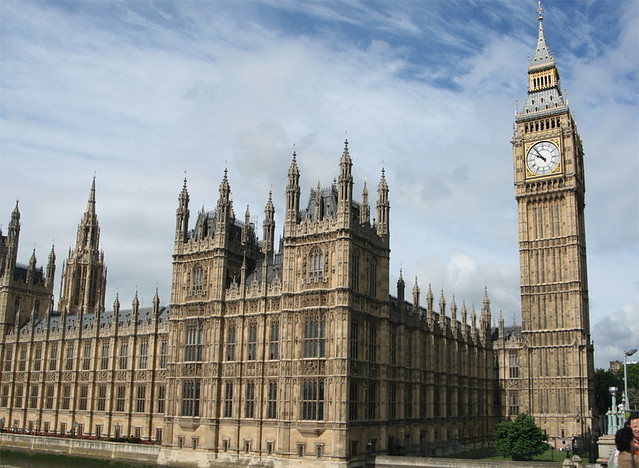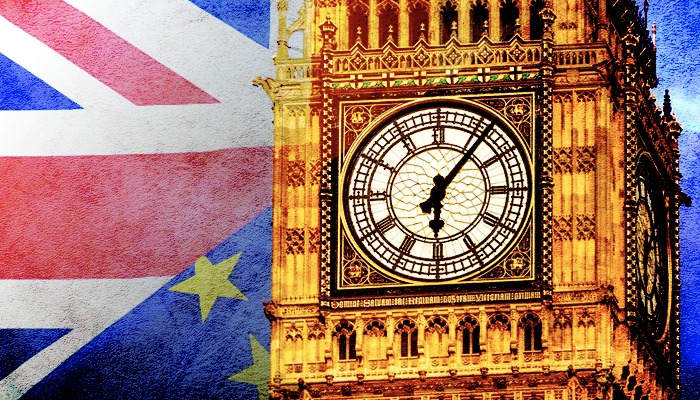Ten politicians are officially registered as candidates for the post of leader of the ruling British Conservative Party and the country’s prime minister. The details were announced on Monday after applicants were officially registered by Cheryl Gillan, a representative of the Tory Party.
THE CANDIDATES
Boris Johnson, 54
The former mayor of London and current Foreign Secretary. Well known (not only in the UK) and quite popular among conservatives, he has a good chance to replace May.
Please check out my campaign launch video. Time to deliver Brexit and unite our fantastic country. I hope you will support me > @BackBoris #BackBoris pic.twitter.com/iRZ8b0flRK
— Boris Johnson (@BorisJohnson) June 3, 2019
Johnson has been firm on Brexit since 2016. He promised that Brexit would finally take place on October 31, and still believes this to be the case. Moreover, he vows to make it happen with or without a deal with Brussels.
Johnson`s other promises include tax cuts for middle and high-income people.
The main criticisms Johnson could face are drug-related issues, the construction of the Garden Bridge, “racism” and his conservative position on questions of gender and sexuality.
Jeremy Hunt, 52
Hunt has a wealth of political experience – including as foreign minister. He also has experience in the Ministry of Health.
Experts note, however, that he does not have Johnson`s level of charisma.
Great little video to start the day with! https://t.co/JjnFtPzTFM
— James Waters (@jameswaters) June 12, 2019
In 2016, he strongly opposed the UK`s exit from the European Union. However, Hunt now promises to organize a bargain for the “divorce”.
Andrea Leadsom, 56
In 2016, she actively campaigned for Brexit. She sharply opposed Theresa May`s position on the issue, even quitting the leadership of the House of Commons in protest. In 2016, she contended with May for the post of prime minister, but gave up on the idea as a result of a scandal – she implied she would be better for the position as the result of having had children, which May could not do for health reasons.
Here’s my new campaign video – please take a look! https://t.co/gxDB1wBubb
— Andrea Leadsom (@andrealeadsom) June 7, 2019
Michael Gove, 51
Gove is the current environment secretary.
From the very beginning, Gove advocated for Brexit, but he did not support Johnson’s candidacy for the post of prime minister in 2016, having decided to run himself. He is accused of having a soft position on the Brexit issue under the May government.
Today I launched my campaign to be the next Prime Minister. Overlooked families and undervalued communities will be at the heart of my premiership.
Sign up to support at https://t.co/e2se1Kv4b3 #Gove4PM #ReadyToLeadhttps://t.co/626lxODNzV
— Michael Gove (@michaelgove) June 10, 2019
Matt Hancock, 40
Secretary of State for Health and Social Care. Young, energetic, but likely not popular enough yet to win the candidacy. He combines the features of social liberalism and economic dynamism.
A campaign video for people, by people #LetsMoveForward pic.twitter.com/4yGxqCGmBv
— Matt Hancock (@MattHancock) June 10, 2019
He promises a new Brexit vote by end of July if he becomes Prime Minister.
Dominic Raab, 45
Ex-Brexit Secretary.
Holding a tough position in favor of Brexit, he strongly opposed May`s middle of the road deal: according to him, the UK was “humiliated” by the proposed option. He does not exclude the possibility of suspending the operations of parliament through Brexit without a deal.
Socially, he represents more conservative views and traditional values, saying that he is “probably not a feminist” and that he opposes people changing their gender.
Do you agree with me that politicians should deliver their promises on Brexit?
Sign up to my campaign today at https://t.co/tzNMbAwj92 ???? pic.twitter.com/AL3HoRbCB3
— Dominic Raab (@DominicRaab) June 4, 2019
Sajid Javid, 48
Javid represents the country`s liberals. He himself is the son of Pakistani migrants and relies on a tolerant electorate, supporters of the free market, etc. He initially opposed the UK leaving the EU. While claiming to have changed his mind, experts suggest he could also quickly move back to his previous positions. On the other hand, as home secretary, he made some attempts to reduce the number of migrants entering the UK, which could help attract the part of the electorate concerned over immigration issues.
I got into politics because I wanted to give back to our country, which has given me so many opportunities. I'm proud to be able to share my story with you. Check out my campaign video and join me at https://t.co/idVRwMVc79 pic.twitter.com/L7cypOHNmA
— Sajid Javid (@sajidjavid) June 11, 2019
Mark Harper, 49
While he is not nearly as popular as the rest of the candidates, Experts say his strong point is that he is a “dark horse†unrelated to May, which could attract voters.
Our country needs someone who can stand up, work with others and get the job done. Someone who is trusted to deliver Brexit and take Britain forwards. That person is me. #Trustedtolead pic.twitter.com/emyNOWK5sl
— Mark Harper (@Mark_J_Harper) June 11, 2019
Rory Stewart, 46
The current International Development Secretary, he was once a tutor to Princes William and Harry.
He popular on social networks, actively publishing content that attracts voters.
While he initially opposed Brexit, he later came around to support the idea of seeking a compromise. He strongly opposes the candidacy of Boris Johnson.
Thank you to the 600 people in the Spiegeltent and the 45,000 people who watched the launch live. Fair, Green, United. #RoryWalks pic.twitter.com/L2OuKKxv7W
— Rory Stewart (@RoryStewartUK) June 11, 2019
Esther McVey, 51
A TV presenter and Cabinet minister, he stands firm on Brexit without compromise and demands the process be completed by October 31st.
Watch why I set up Blue Collar Conservatism and why, as leader, I will:
????Cut foreign aid by £7bn????
and use that money to:
????♂Boost police with £3bn????♀
????????Boost schools with £4bn????????#RestoringTrust https://t.co/uYtBlsXv5R
— Esther McVey (@EstherMcVey1) June 11, 2019
PROGNOSIS
When will the candidate be chosen?
A new Tory leader will be chosen by the end of July, and, accordingly, the UK will get the head of government, given that the Conservative Party is in power now.
Each round, the candidate with the least votes will be eliminated until only two main candidates remain. After that, all Conservative party members (about 120,000 registered Tories) will vote and select the new leader.
House of Commons problem
In case of difficulties during Brexit negotiations, the House of Commons could still pass a no-confidence motion against the new leader. In such a case, new elections are likely to be called.

Flickr
The challenge for a new prime minister
The main question for the UKs future is whether the prime minister will try to negotiate changes to the existing agreement with the European Union or will instead look for a completely new arrangement. For now, Brussels is happy with the existing deal, and wont accept both options. All the same, the majority of the candidates are strong Brexit supporters, open to a no-deal scenario.
No matter who ends up as prime minister, the question will be how the person will negotiate with Brussels.
The issue is that Brussels has rejected both options, saying that the existing deal is the best that the UK will receive. In order to strike a deal before the official Brexit date of October 31, the new leader will hardly be able to change the deal in a significant way.
The UK`s political instability will undoubtedly make the future of the rest of Europe uncertain as well. The good this is, that after promising to resign, May has sent Brexiteers a clear message – they can now take control of negotiations on future trade relations between the UK and the EU. The most likely result is that a candidate Johnson will bring a fast and hard Brexit, despite the consequences of threats made by Brussels` bureaucrats.

















Leave a Reply